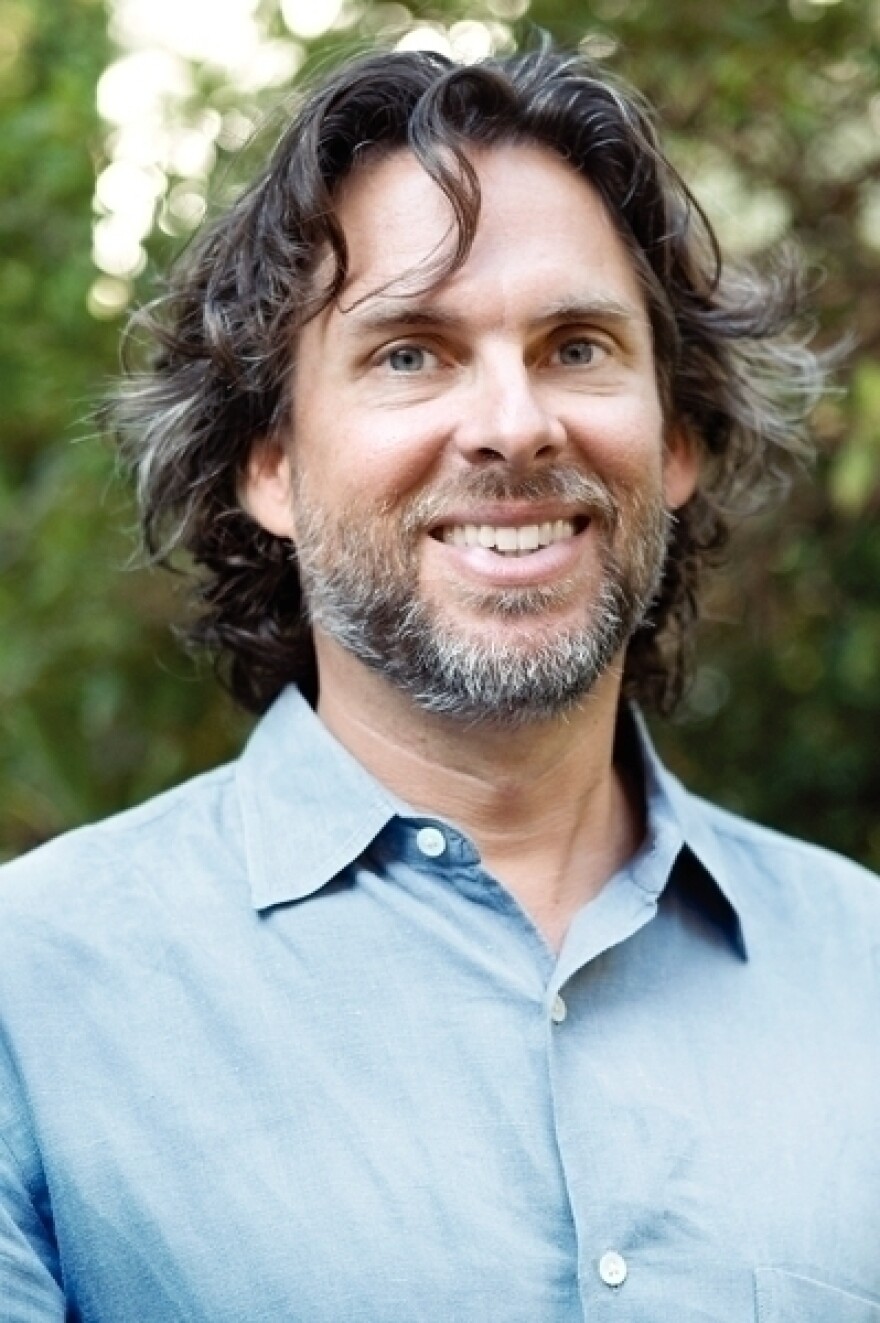Michael Chabon's latest novel, Telegraph Avenue, is named after the famed road between Oakland and Berkeley in California.
In the book, that's also where two couples — Nat and Aviva, who are white, and Archy and Gwen, who are black — are struggling to get by. The two men are friends, partners in a vinyl record shop. Their wives work together as nurse midwives.
Over the course of a couple of weeks, the characters deal with threats to their work, to their relationships and their very way of being. Chabon delves deeply into issues of art, race and sexuality.
Telegraph Avenue is Chabon's eighth novel. He won the Pulitzer Prize in 2001 for his book, The Amazing Adventures of Kavalier & Clay, about Jewish refugees and the comic book industry.
Chabon says when it came to coming up with the idea for Telegraph Avenue, he didn't start with a plot or a character or a theme in mind. He tells weekends on All Things Considered host Guy Raz, it all started with "a very tiny world."
Interview Highlights
On the inspiration behind Telegraph Avenue
"The initial seed was planted when sometime in the late '90s, I, having just moved to Berkeley, I walked into a used record store. And I was struck immediately on walking into this place. First, you know, overwhelmed by the incredibly nostalgic, powerful odor of mouldering records. And then I looked around and what I saw was, two guys were working in the store this day, one was a black guy, one was a white guy. And their customers were all standing around, hanging out and they were black guys and white guys too. And just at that moment, I was caught with a sense of both of longing and of remembrance. Because I grew up in the 1960s and '70s in .... a town called Columbia, Md."
On growing up in Columbia, Md.
"Columbia was a planned community that was built in the 1960s and was intended to be a place where people of different races could live together, could find affordable housing and young families could grow up together. And when I grew up there, it did a pretty good job of hewing to those ideals ... And when I walked into the record store, I just got a sense of return. And that was where it eventually emerged in the form of this book."
On constructing a sentence
"Sentences are the purest, simplest, most pleasurable part of writing for me. And it's the part that comes the easiest to me. It is frequently the case that I, as I am sitting and writing ... the harbinger of the sentence kind of begins to occur to me in a sort of empty, rhythmic form that has no real meaning yet ... And, you know, instantaneously afterwords, the sense of the sentence fills in that empty vessel and I'm just struggling to kind of keep up with it and get it down. But there are plenty of other times where I am just really working and working and working and working and ... I trample on that initial, beautiful, mystical sentence that emerged ... and I have to try to keep fixing it and tinkering with it. And, you know, I love that aspect of it: the shaping of sentences, the crafting of sentences, that's the fun part of writing for me."
On accepting praise from critics
"I have such incredible, lingering after-effects, even at the age of 49 ... I still smart, deep-down inside, every day from having felt like a doofus and a nerd and a geek, having been picked on and teased and everything from the time I was 10 years old to the time I was about 14 years old. The effects of that period have never gone away. You know, when I hear people giving me the ... praise ... as much as it's, you know, it's very nice and everything. But there's a deep, important, crucial part of me that just says, you know, it just washes over. And that part of me says, 'You're still a loser though. You're still a loser.'"
Copyright 2023 NPR. To see more, visit https://www.npr.org.



